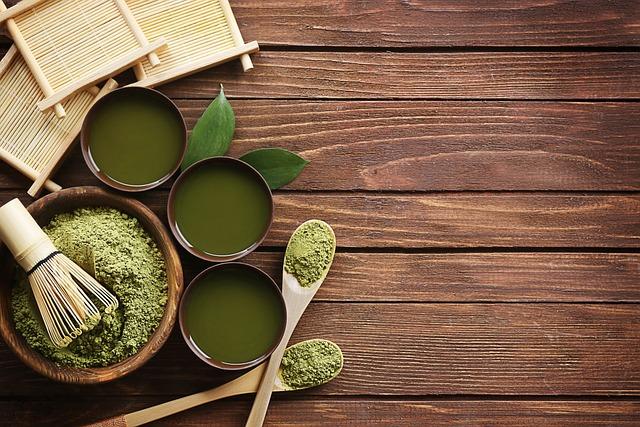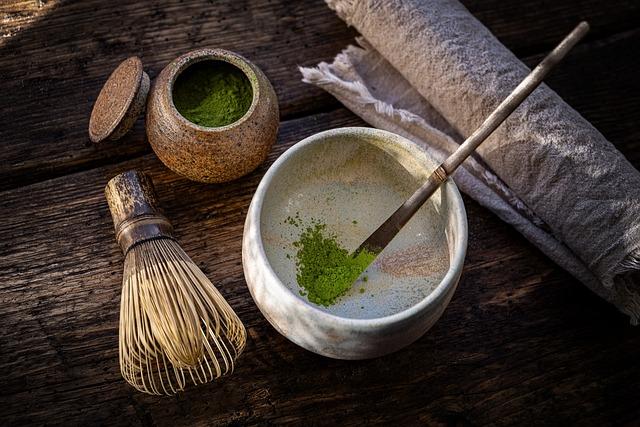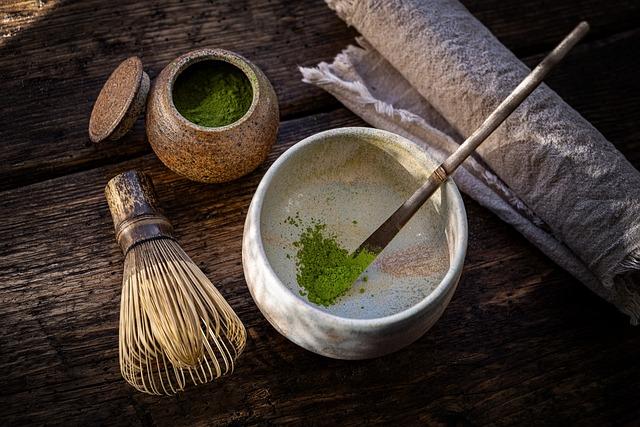False Positives: Can Kratom Cause a False Positive?
When it comes to drug testing, one of the primary concerns is the possibility of false positives. Whether it be in employment screening, probation tests, or athletic competitions, individuals are rightfully worried about false allegations resulting from inaccurate results. In recent years, Kratom, a plant native to Southeast Asia, has gained popularity as an herbal supplement known for its potential pain-relieving and mood-enhancing effects. However, some users have reported alarming experiences, claiming that Kratom has caused them to fail drug tests due to false positives. In this article, we will dive into the world of false positives to understand whether Kratom can genuinely lead to erroneous drug test results or if other factors are at play. Let’s explore the facts and shed light on this controversial topic, bringing clarity to those seeking reliable information.
1. Understanding False Positives in Substance Testing: Exploring the Link Between Kratom and False Positive Results
False positives in substance testing can have serious consequences, and it is crucial to understand the factors that can lead to such inaccurate results. One substance that has raised concerns in relation to false positives is kratom. Kratom is a tropical tree native to Southeast Asia and is commonly used for its stimulating and mood-enhancing properties.
Several studies have shown a potential link between kratom consumption and false positive drug test results. This is primarily due to the presence of alkaloids found in kratom leaves that share structural similarities with certain opioids. As a result, these alkaloids can sometimes trigger a positive result for opioids during drug screenings.
It is important to note that false positives can occur in various drug testing methods, including urine, blood, and hair tests. However, it is crucial to approach these results with caution and seek further confirmation through more specific and accurate testing methods. By understanding the link between kratom use and false positive results, individuals can make more informed decisions and take appropriate measures to ensure accurate drug testing outcomes.
2. Debunking the Myth: Unraveling the Truth About Kratom and False Positive Drug Tests
When it comes to drug testing, there has been an ongoing debate about the potential for Kratom to cause false positive results. However, it is important to debunk this myth and shed light on the truth about Kratom and its effects on drug tests.
1. Kratom is a natural plant that has been traditionally used for its medicinal properties in Southeast Asia. It contains alkaloids that can interact with opioid receptors in the brain, but these alkaloids are different from the ones found in opioids like heroin or morphine. As a result, Kratom is unlikely to show up as a positive result for opioids in a drug test.
2. Most standard drug tests are designed to detect specific substances, such as opioids, cannabis, amphetamines, or cocaine. Kratom is not typically included in these standard panels, meaning it is highly unlikely to cause a false positive for any of these drugs. However, it is still essential to inform the testing laboratory about any substances you have consumed, including Kratom, to ensure accurate results.
3. It is worth noting that some specialized drug tests may be able to detect the presence of Kratom. These tests are usually more expensive and not commonly used in routine drug screening. If you are taking a drug test and have concerns about Kratom, it is recommended to discuss it with the testing facility beforehand to clarify any potential issues.
3. The Science Behind False Positives: Analyzing the Potential Influence of Kratom on Drug Screening Results
The potential influence of Kratom on drug screening results is a topic that necessitates a deep understanding of the science behind false positives. False positives occur when a drug test incorrectly indicates the presence of a particular substance. In the case of Kratom, it is crucial to analyze how the components of this plant can interact with drug screening tests and potentially lead to false positive results. By examining the scientific aspects, we can gain insight into the complexities involved and address any misconceptions that may arise.
1. Understanding the chemistry of Kratom:
Kratom contains various alkaloids, including mitragynine and 7-hydroxymitragynine, which may be responsible for its effects. These alkaloids have a structural similarity to certain opioids and may interact with opioid receptors in the body. However, it is essential to note that Kratom itself is not an opioid, but rather, a member of the coffee family. Understanding the chemical makeup of Kratom is a crucial first step in comprehending its potential effects on drug screening results.
2. Factors influencing false positive results:
Several factors can contribute to false positive results in drug screenings when considering Kratom. These factors may include the quality and purity of the Kratom product being used, the dosage consumed, individual metabolism variations, and the sensitivity of the drug screening test utilized. It is essential to consider each of these elements when evaluating the potential for Kratom to influence drug screening results.
3. Research and scientific studies:
Numerous research studies have been conducted to examine the influence of Kratom on drug screening tests. These studies explore the interactions between Kratom alkaloids and the specific markers used in drug screenings. While some evidence suggests the potential for false positives, it is crucial to evaluate these studies critically, considering factors such as sample size, methodological limitations, and the specific drug screening protocols employed. Understanding the outcomes of scientific research aids in developing a more comprehensive understanding of the science behind false positives associated with Kratom.
4. Unveiling the Facts: Separating Reality from Rumors on Kratom’s Involvement in False Positive Tests
Kratom, a natural herb derived from the Mitragyna speciosa tree, has recently faced scrutiny for its potential involvement in false positive drug tests. However, it is crucial to separate reality from rumors surrounding this issue to gain a better understanding.
1. Kratom’s Effect on Drug Tests:
- Despite some claims, kratom does not typically result in false positives for commonly tested substances like opioids or other illicit drugs.
- Standard drug tests do not screen for kratom alkaloids, which are the active compounds in kratom leaves. Therefore, the chances of a false positive solely due to kratom are highly unlikely.
- However, some kratom products may contain other substances that could potentially trigger a positive test result. These contaminants or additives might be the cause, rather than kratom itself.
2. Potential for Cross-Reactivity:
- Cross-reactivity, where a substance triggers a positive result for a different substance, may be a concern with certain drug tests.
- While kratom alkaloids do not cross-react with opioids or other commonly tested drugs, there could be a chance of cross-reactivity with specific tests designed to detect kratom metabolites. However, such tests are currently rare and not commonly used.
3. Need for Accurate Testing Methods:
- As with any substance, accurate and reliable testing methods are crucial to distinguish between false positive results and actual substance use.
- Laboratories should utilize specific tests that target kratom markers instead of relying on general drug screenings.
- Further research and development of standardized tests for kratom detection are essential to provide accurate results and prevent any confusion or misinformation.
By staying informed and acknowledging reliable information, we can separate the reality of kratom’s involvement in false positive drug tests from the rumors and myths circulating. Remember to prioritize accurate testing methods and continue seeking knowledge to navigate this topic effectively.
5. Kratom and False Positives: Unpacking the Factors that Could Potentially Lead to Misleading Drug Test Results
When it comes to drug testing, one substance that has been the subject of much debate is kratom. Kratom is a tropical tree native to Southeast Asia, and its leaves have been used for centuries for their stimulating and pain-relieving effects. However, there have been concerns that kratom use could potentially result in false positives on drug tests.
There are several factors that contribute to the possibility of misleading drug test results when it comes to kratom. Firstly, it’s important to understand that drug tests can vary in their sensitivity and specificity. Some tests may be more likely to produce false positives than others.
- Kratom contains alkaloids that can interact with opioid receptors in the brain, leading to effects that are similar to opioids. As a result, some drug tests may not be able to distinguish between kratom and actual opioids, potentially leading to a false positive.
- Additionally, the metabolites of kratom can remain in the body for an extended period, particularly in regular or heavy users. This means that even if someone has stopped using kratom, they may still test positive for its metabolites.
- Another important factor to consider is the quality and purity of the kratom being consumed. Some products may be contaminated with other substances that could potentially trigger a false positive on a drug test.
It’s important to keep these factors in mind when interpreting drug test results in individuals who use kratom. If there are concerns about false positives, confirmatory testing can be performed to ensure accurate results. It’s always best to consult with a healthcare professional who has knowledge about kratom and drug testing to address any specific concerns or questions.
6. Staying Informed: What You Need to Know About Kratom’s Impact on False Positive Drug Tests
Many individuals are interested in learning about the potential effects of kratom on drug test results. While kratom consumption does not typically trigger positive results for illicit substances, it is important to stay well-informed to avoid any potential misunderstandings. Here are the key points to keep in mind:
- Plant-Based Nature: Kratom is a plant native to Southeast Asia and belongs to the coffee family. It is commonly consumed for its stimulating and sedative effects.
- Composition: Kratom’s alkaloids, such as mitragynine and 7-hydroxymitragynine, interact with opioid receptors in the brain, leading to pain relief, relaxation, and improved mood.
- Drug Screening: Standard drug tests do not typically detect the alkaloids found in kratom. These tests are designed to identify specific substances, such as opioids, cannabis, or amphetamines, meaning kratom is generally not a cause for concern in routine screenings.
- False Positives: While kratom consumption is unlikely to result in false positives for illicit substances, it is crucial to disclose any herbal supplement intake during drug test procedures. This information helps the testing facility interpret and validate the results accurately, preventing any confusion or misinterpretation.
By staying informed about kratom and drug testing, you can confidently navigate any drug screening processes and ensure accurate results. Remember, open communication with the testing facility is essential for an accurate analysis of your drug test.
7. Examining the Evidence: An Objective Look at Kratom and Its Association with False Positive Results
Kratom, a botanical substance derived from a tropical tree, has gained significant attention in recent years for its potential therapeutic benefits. However, it has also faced criticism and concern over its association with false positive results in drug tests, raising questions about its safety and reliability as a substance. To shed light on this issue, let’s explore the available evidence in an unbiased manner.
1. Understanding False Positive Results:
- A false positive result occurs when a drug test indicates the presence of a specific substance, even though it may not be present in reality.
- Various factors can contribute to false positives, including cross-reactivity with other substances, flawed testing procedures, or inadequate confirmation testing.
2. Studies on Kratom and False Positives:
- Several studies have investigated the association between kratom use and false positive results on drug tests.
- While some studies suggest that certain kratom alkaloids may trigger false positives for opioids or other substances, the overall data is limited and inconclusive.
- It is important to highlight that false positive results related to kratom are rare and can often be resolved with confirmatory testing techniques.
3. Considering Mitigating Factors:
- When interpreting drug test results, it is crucial to consider individual factors that may influence the likelihood of false positives, such as the quality and purity of the kratom product consumed.
- Furthermore, the sensitivity and specificity of the drug testing method utilized must be taken into account to ensure accurate results.
In conclusion, while concerns have been raised regarding the association between kratom and false positive results, the available evidence remains inconclusive. It is crucial to approach this issue with an objective mindset, considering all relevant factors and available research. If you are a kratom consumer facing a false positive result, confirmatory testing can help resolve any uncertainties and provide a clearer picture of the situation.
8. Navigating the Controversy: Understanding the Veracity of Claims Surrounding Kratom and False Positives
Post Section
When discussing the controversial topic of Kratom and whether it can cause false positives on drug tests, it’s important to understand the veracity of the claims surrounding this issue. While there are conflicting opinions, it is crucial to rely on solid information and scientific evidence to form an informed understanding.
Here are some key points to consider:
- 1. False Positives: False positives occur when a drug test incorrectly indicates the presence of a substance. Some argue that Kratom, a plant native to Southeast Asia, can cause false positives for opioids or other drugs. However, extensive research suggests that these false positives are extremely rare and typically result from improper testing procedures or cross-reactivity with specific drug tests.
- 2. Cross-Reactivity: Cross-reactivity refers to the ability of a substance to trigger a positive result on a drug test designed to detect another substance. Although Kratom can contain alkaloids that may interact with certain drug tests, thorough studies have shown that these cross-reactions are generally minimal and easily distinguishable from opioids or other commonly tested substances.
- 3. Reliable Testing Methods: To differentiate between Kratom and opioids during drug testing, laboratories employ advanced techniques such as mass spectrometry or liquid chromatography. These methods are highly sensitive and accurate, ensuring that false positives are minimized and precise results are obtained.
Thus, it is essential to approach the controversy surrounding Kratom and false positives with a discerning mindset, relying on credible sources and well-conducted studies rather than just anecdotal reports. By understanding the science behind the claims, you can navigate this topic more confidently and make informed decisions.
9. Making Sense of the Complexities: Insights into Kratom’s Connection with False Positive Drug Testing
In recent years, there has been increasing interest in kratom, a tropical plant native to Southeast Asia. However, one concern that has arisen revolves around the possibility of false positive drug testing results due to kratom consumption. This article aims to shed light on this complex issue and provide key insights into the connection between kratom and false positive drug tests.
Firstly, it is important to understand that false positive drug tests occur when a test incorrectly indicates the presence of a particular substance in a person’s system. When it comes to kratom, certain alkaloids found in the plant can potentially trigger false positive results for opioids on standard drug tests. This is because these alkaloids, such as mitragynine and 7-hydroxymitragynine, have chemical structures similar to opioids.
To better understand the complexities surrounding kratom and false positive drug tests, it is crucial to consider several factors:
- Dosage: The amount of kratom consumed can influence the likelihood of a false positive result. Higher doses may increase the chances of a positive reading on a drug test.
- Testing Method: Different drug testing methods can yield different results. Some advanced tests can differentiate between opioids and kratom alkaloids, reducing the likelihood of false positives.
- Metabolism: Each individual’s metabolism varies, and this can impact how long kratom alkaloids remain detectable in their system. This, in turn, affects the probability of false positive drug test results.
It is essential for individuals who consume kratom to be aware of these complexities and the potential for false positive results in drug testing. Employers and healthcare professionals should also be informed to avoid drawing incorrect conclusions solely based on a positive test result. Additional confirmatory testing should be conducted to differentiate between kratom and illicit opioids and ensure accurate results.
Conclusion
In conclusion, false positives in drug tests can occur, and it is essential to understand the potential causes behind them. While kratom use has been associated with false positive results for opioids, it is crucial to note that these occurrences are relatively rare. False positives can arise due to various factors, such as cross-reactivity with certain immunoassays or laboratory errors during testing.
It is imperative for individuals who consume kratom to be aware of these possibilities and communicate openly with their healthcare providers or employers about their kratom use. By discussing the specifics of their consumption, individuals can minimize the chances of misinterpretation or unwarranted consequences associated with false positive results.
Having accurate and reliable drug testing methods is crucial for maintaining fairness and trust in various settings, including the workplace, criminal justice systems, and rehabilitation centers. While false positives can be unsettling, it is reassuring to know that professionals in the field are continually working to improve the accuracy and specificity of drug tests.
In conclusion, the potential for kratom to cause a false positive result on a drug test exists, albeit rarely. It is advisable for individuals to educate themselves about these possibilities and engage in open discussions regarding their kratom consumption to lessen any unwarranted repercussions linked to false positives. With ongoing developments in drug testing technology, the field continues to advance, providing more accurate and reliable results.













